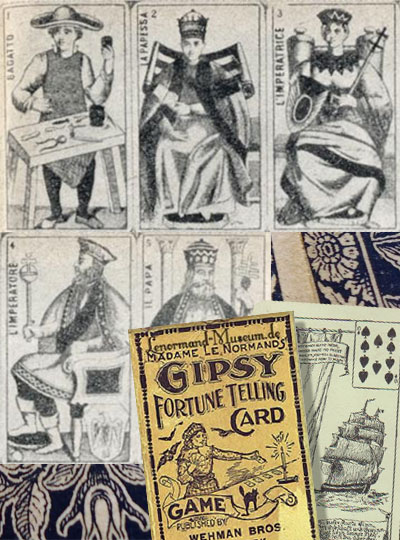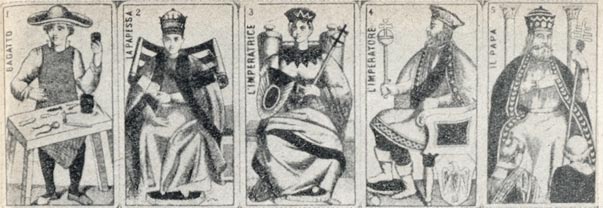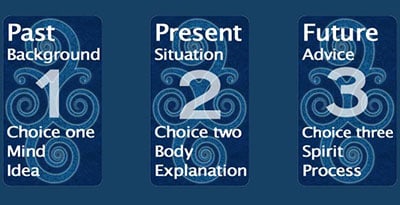
The Origin of Tarot
The history around the origin of the Tarot has a few different ‘schools of thought’, though many sources suggest that an early form of Tarot was adapted into Western culture in the early to mid 1400s; a time when both card games and Cartomancy were becoming increasingly popular with people from all walks of life. During this time, wealthy families would have custom tarot decks painted for them, depicting members of their family on the cards. To this day, there are some sets that were created for the Visconti family, that have survived.
Image: A Swiss deck from 1860 showing a selection of Major Arcana (Trump) card & a fortune telling deck with poster from 1904.
Some historians believe that the Tarot originated in Italy, while others believe it was introduced to Europeans by the Gypsies (or Romani people), travelling up from the Far East and India. This connection to both India and the Romani people seems highly likely, considering the rich iconography and visual symbolism of these cultures. Whichever way the introduction occurred, it is clear that the rich iconography made a lasting impression; which to this day sees the Tarot as a valuable and fascinating tool for introspection.

The Visual Aspect
Looking at old tarot cards, it is interesting to see how iconography, clearly derived from the feudal system and the church, was incorporated into early European tarot cards.
As tarot became more popular in the Western world, new interpretations and formats emerged, some taking inspiration from the Kabbalah, esotericism and the occult, while others became drawn to the tarot as a psychological tool.

Tarot readings may fascinate and entice many, yet superstitions have some fear that the cards themselves have the power to make bad things happen.
Detailed images, rich symbols, and complex patterns connecting the cards may provide insight to the querent and reader, though, the cards themselves have no special powers. In many ways the cards can be seen as a tool for interpreting what the subconscious mind already knows (on some level), providing food for thought and choices for going forward.












